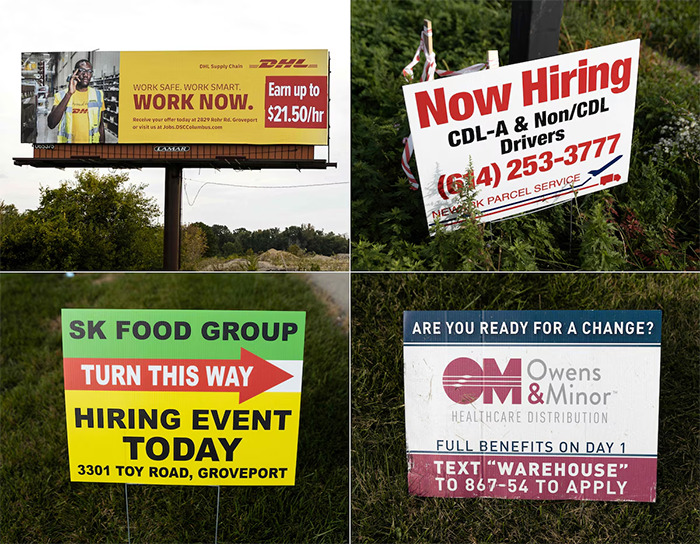
One reason so many are quitting: We want control over our lives again
The pandemic, and the challenges of balancing life and work during it, have stripped us of agency. Resigning is one way of regaining a sense…
Thought Leader: Amy Cuddy
With summer school holidays upon us in the UK, I’m re-sharing one of my favorite newsletters, which is about attention.
I remember coming across this “searchlight” metaphor that made me completely rethink what it actually means to pay attention — not just in the moment, but to what we choose to focus on in the first place. It’s really powerful advice, and something I’m applying to my own work and life right now (more on that in a future newsletter!) I’d love to hear what it prompts in you. Enjoy!
In 1890, the legendary philosopher and founding father of modern psychology, William James, wrote a masterwork called The Principles of Psychology, Vol.1. It included a powerful idea that is utterly relevant today:
“My experience is what I agree to attend to.”
The concept made me completely rethink attention as something intentional. It’s the key to giving us control over how we spend our time — and our lives. Learning to pay attention to what we give our attention to is a human superpower. Yet how often do we think about where our time and attention go, and why?
For decades, psychologists have used the “searchlight” metaphor to describe the cognitive process of attention. The model was based on the idea that the brain shines a light on the items or information of the most interest.
But recent research shows the attentional searchlight metaphor was backwards: the brain doesn’t brighten the light on stimuli of interest, it lowers the lights on everything else to help us concentrate on one thing.

Cosmigraphics: Picturing Space Through Time (1573), by Francisco de Holanda
One of my favourite descriptions of attention comes from the cognitive scientist Alexandra Horowitz in her book On Looking.
“Attention is an intentional, unapologetic discriminator. It asks what is relevant right now and gears us up to notice only that.”
In today’s digital age, a lot of focus has been given to how we can pay better attention by filtering out distractions. You’ve probably seen advice such as:
All great advice on how to exercise focus. But even if we are fully immersed in what we’re doing, it doesn’t prevent us from giving our time, energy, and attention to the wrong things.
Attention is our main resource. What we attend to shapes the experience we have, which determines the life we live.
Do you feel like your goals conflict with your attention?
I know that feeling so well. The gulf between the work you want to do, the time you want to spend with friends and family and how you actually spend your days.
Attention management starts by becoming aware of where your time and attention goes in the day. For a week, keep a log tracking the following questions:
Be specific about where your attention in your days actually goes. Thinking about how you spend your attention resource can reveal some of the most surprising and confronting insights about our true productivity.
Once you get a sense of what’s going on when, start to unpack the ‘whys’ based on three factors:
James wrote his book in 1890 when there was a lot less competition for our attention. It’s so easy to blame technology – email, TikTok, Insta, Zoom, Netflix, fill in the blank — however, we have long wrestled with attention conflict. You can’t leave giving your attention to the most meaningful things to chance.
As James said, your experience is what you attend to.
Getting better at attention management does not mean checking more things off a to-do list. It doesn’t mean creating a perfect environment where there are zero distractions. It’s about dimming the lights on the things that don’t matter, to create space for the things that do.
Rachel Botsman is a world-renowned authority on trust and how it shapes business, technology, and society. With engaging storytelling and clear frameworks, she helps leaders and organizations understand how trust is built, lost, and regained in a rapidly changing world. Audiences leave her talks with actionable insights on navigating uncertainty and fostering meaningful connections—making her an exceptional keynote speaker for any forward-looking event. To bring Rachel to your next event, contact WWSG today.
One reason so many are quitting: We want control over our lives again
The pandemic, and the challenges of balancing life and work during it, have stripped us of agency. Resigning is one way of regaining a sense…
Thought Leader: Amy Cuddy
Molly Fletcher: Can drive offset your burnout at work?
This piece is by Molly Fletcher. People assume that drive depletes energy. They believe that level of intensity, focus and daily effort leads to burnout.…
Thought Leader: Molly Fletcher
Paul Nicklen: A Reverence for Nature
Standing in front of any of Canadian photographer Paul Nicklen’s large-scale images in the current exhibition at Hilton Contemporary, one cannot help but be totally…
Thought Leader: Paul Nicklen

